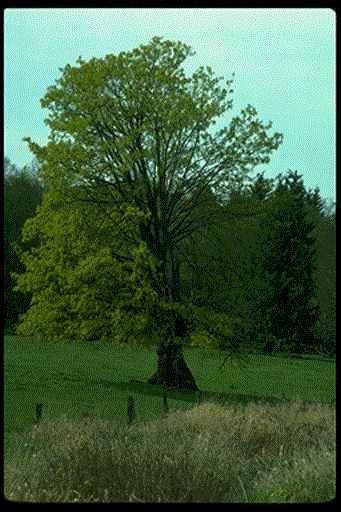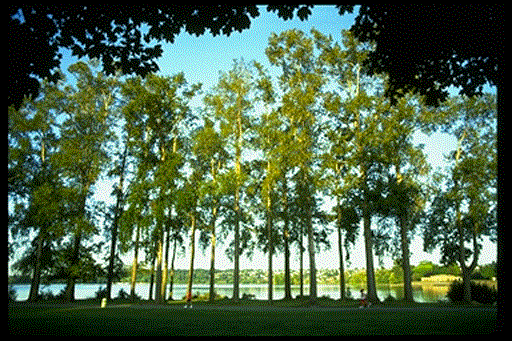"IN DETERMINING WHAT DAYS SHOULD
BE REGARDED AS HOLY, and in the composition of a prayer for national
use, CONSTANTINE EXERCISED ONE OF THE RIGHTS BELONGING TO HIM
AS PONTIFEX MAXIMUS, and it caused no surprise that he should
do this."—"History of Rome," Chap. C11, Part
1, par. 4, from end.
So much for the exclusively religious origin
and character of Sunday legislation as it is in itself. Now what
for
ITS INSPIRATION AND INITIATION.
This original Sunday legislation was but
a part of the grand ambition and scheme of the popular church
of the time through politico-ecclesiastical connivance and intrigue
with Constantine to establish a "kingdom of God" on
earth; and this in the very thought and purpose of an earthly
theocracy. For there had in fact arisen in the church "a
false theoretical theory . . . which might easily result in the
formation of a sacerdotal State, subordinating the secular to
itself in a false and outward way." "This theoretical
theory was already the prevailing one in the time of Constantine;
and "the bishops voluntarily made themselves dependent on
him by their disputes and by their determination to make use
of the power of the State for the furtherance of their aims."—
Neander.
Accordingly the whole scheme of a human
theocracy in imitation of the original and divine one in the
Scriptures, was definitely worked out by the bishops; and through
Sunday legislation was made effective. This is absolutely unmistakable
and undeniable in the history of the time. It is the plain thread-thought
of the whole ecclesiastical literature of the time; and stands
crystallized in Bishop Eusebius's "Life of Constantine."
The church was Israel in Egypt oppressed by the Pharaoh Maxentius,
and Constantine was the new Moses who delivered this new oppressed
Israel. The defeat of Maxentius by Constantine in the, battle
of the Milvian Bridge, and his drowning in the Tiber, was the
overthrow of Pharaoh in the sea, and his "sinking to the
bottom like a stone." After this deliverance of the new
Israel by this new Moses, the new Moses with the new Israel went
on to the conquest of the heathen in the wilderness, to the full
establishment of the new theocracy, to the entering of the promised
land, and to the saints of the Most High taking the kingdom.
Accordingly, by the new Moses a tabernacle was set up, and a
priesthood in imitation of the divine original in the Scriptures
was established. And still in imitation of that divine original
in the Scriptures, Sunday was by law made the sign of this new
and false theocracy, as the Sabbath was and is the sign of the
original, the true, and the divine Theocracy. And this was done
with this direct intent; for we have it so stated in the words
of Bishop Eusebius himself who was one of the chief ones in the
doing of it. Here are his words:—
 "All things whatsoever it was duty
to do on the Sabbath, these WE have transferred to the Sunday."
That the scheme and system of things thus
established was in their thought the very kingdom of God on earth,
is also plainly and positively stated by Bishop Eusebius thus:—
"Invested as he is with a semblance
of heavenly sovereignty, he [Constantine] directs his gaze above
and FRAMES HIS EARTHLY GOVERNMENT according to THE PATTERN of
that DIVINE ORIGINAL, feeling strength in ITS CONFORMITY TO THE
MONARCH of GOD." "And by the appointment of the Caesars
fulfills the predictions of the prophets, according to what they
uttered ages before: 'And the saints of the most High SHALL TAKE
THE KINGDOM.'"— "Oration," Chap. III.
And Sunday observance established and
enforced by imperial law, as the sign of the new and false theocracy,
in the place and in imitation of the Sabbath as the sign of the
original and true Theocracy, was the means of making all the
people "fit subjects" of this new and false "kingdom
of God." Here are the words, still by Bishop Eusebius:
"Our Emperor, ever beloved by Him,
derives the source of imperial authority from above." "That
preserver of the universe orders these heavens and earth and
the celestial kingdom, consistently with His Father's will. Even
so, our emperor, whom He loves, by bringing those whom he rules
on earth to the only begotten Word and SAVIOUR, RENDERS THEM
FIT SUBJECTS OF HIS KINGDOM."— Id. Chap. II.
These evidences demonstrate that the inspiration
and initiation of the original Sunday legislation was exclusively
and specifically ecclesiastical; and this all to the promotion
of a grand and subtle scheme of the bishops for the erection
of "a sacerdotal state" that should "subordinate
the secular to itself in a false and outward way"; and to
make effective "their determination to make use of the power
of the State for the furtherance of their aims."
Therefore by the evidence on these two
counts—1. "The Origin and Character;" 2. "The
Inspiration and Initiation,"of the original Sunday legislation—that
the said Sunday legislation is specifically religious and ecclesiastical,
with every other thought and intent specifically excluded, stands
proven to a demonstration: to a demonstration, because it is
the unanimous testimony of all the evidence that can be brought
in the case.
HOW STANDS THE CASE NOW?
The exclusively and specifically religious
and ecclesiastical character of the original Sunday legislation
being a positive fixture, the question next arises, Has Sunday
legislation ever lost that exclusive and specific religious and
ecclesiastical character?
First of all, how could that character
possibly be lost? That being its native and inherent character;
that being absolutely the only character that it ever had; it
is perfectly plain that this character simply never could be
lost. As certainly as the thing survives at all, its native and
inherent character is there. Therefore, wherever, to the world's
end, Sunday legislation shall be found, its native and inherent
religious and ecclesiastical character inevitably attaches to
it.
"All things whatsoever it was duty
to do on the Sabbath, these WE have transferred to the Sunday."
That the scheme and system of things thus
established was in their thought the very kingdom of God on earth,
is also plainly and positively stated by Bishop Eusebius thus:—
"Invested as he is with a semblance
of heavenly sovereignty, he [Constantine] directs his gaze above
and FRAMES HIS EARTHLY GOVERNMENT according to THE PATTERN of
that DIVINE ORIGINAL, feeling strength in ITS CONFORMITY TO THE
MONARCH of GOD." "And by the appointment of the Caesars
fulfills the predictions of the prophets, according to what they
uttered ages before: 'And the saints of the most High SHALL TAKE
THE KINGDOM.'"— "Oration," Chap. III.
And Sunday observance established and
enforced by imperial law, as the sign of the new and false theocracy,
in the place and in imitation of the Sabbath as the sign of the
original and true Theocracy, was the means of making all the
people "fit subjects" of this new and false "kingdom
of God." Here are the words, still by Bishop Eusebius:
"Our Emperor, ever beloved by Him,
derives the source of imperial authority from above." "That
preserver of the universe orders these heavens and earth and
the celestial kingdom, consistently with His Father's will. Even
so, our emperor, whom He loves, by bringing those whom he rules
on earth to the only begotten Word and SAVIOUR, RENDERS THEM
FIT SUBJECTS OF HIS KINGDOM."— Id. Chap. II.
These evidences demonstrate that the inspiration
and initiation of the original Sunday legislation was exclusively
and specifically ecclesiastical; and this all to the promotion
of a grand and subtle scheme of the bishops for the erection
of "a sacerdotal state" that should "subordinate
the secular to itself in a false and outward way"; and to
make effective "their determination to make use of the power
of the State for the furtherance of their aims."
Therefore by the evidence on these two
counts—1. "The Origin and Character;" 2. "The
Inspiration and Initiation,"of the original Sunday legislation—that
the said Sunday legislation is specifically religious and ecclesiastical,
with every other thought and intent specifically excluded, stands
proven to a demonstration: to a demonstration, because it is
the unanimous testimony of all the evidence that can be brought
in the case.
HOW STANDS THE CASE NOW?
The exclusively and specifically religious
and ecclesiastical character of the original Sunday legislation
being a positive fixture, the question next arises, Has Sunday
legislation ever lost that exclusive and specific religious and
ecclesiastical character?
First of all, how could that character
possibly be lost? That being its native and inherent character;
that being absolutely the only character that it ever had; it
is perfectly plain that this character simply never could be
lost. As certainly as the thing survives at all, its native and
inherent character is there. Therefore, wherever, to the world's
end, Sunday legislation shall be found, its native and inherent
religious and ecclesiastical character inevitably attaches to
it.
 That is true in the very principle and
nature of the case. But let us trace the thing historically and
see how completely the principle is manifested. The "sacerdotal
State," in the erection of which the original Sunday legislation
was such a potent factor, did, all over Europe and for more than
a thousand years, "subordinate the secular to itself,"
and did thus most despotically "make use of the power of
the State—every State—for the furtherance of her aims."
In all this dismal time Sunday legislation was continued, and
with no pretense of any other than its original, native, and
inherent, religious and ecclesiastical character.
In 1533 Henry VIII divorced himself and
England from the Pope of Rome. But that was all: for, to what
then and thus became "The Church of England" Henry
immediately stood as pope in the place of the pope. By statute
it was ordered that the king "shall be taken, accepted and
reputed the only supreme head on earth of the church of England."
And in 1535 Henry assumed officially the title "On earth
supreme head of the Church of England." That which was now
the Church of England was only that which before had been the
Catholic Church in England. "In form nothing had been changed.
The outer constitution of the Church remained unaltered."—Green.
And in this same unchanged system the
original papal Sunday legislation was continued, and has been
continued to the present day: and still with no pretense or suggestion
of anything else than as in its original, native, and inherent,
religious and ecclesiastical character.
From England there spread colonies to
America. In America these colonies were established by English
charters, and so were but the extension here of the English Government.
And in strict accord with the English system, and in plain extension
of it, every colony established in America, except only Rhode
Island, had an established religion: either in the form of "the
Christian religion" in general, or else, as in most, in
the form of some particular church.
And in every one of these colonial religious
establishments in America, there was extended, and in some there
was even intensified, the Sunday legislation of the English system,
which was only the extension of the Sunday legislation of the
original Roman and papal system.
And still here, as always before in England
and in Rome, the Sunday legislation of the colonies in America
was never with any thought or purpose, or pretense, other than
as in its original, native, and inherent, religious and ecclesiastical
character.
Presently these colonies cut loose from
the government of Britain and. became "free and independent
States." But still each of them was the same as before in
its system of established religion and Sunday legislation. Virginia,
however, immediately dis-established there the Church of England
and her religion; and as regards established religion as such
swept it all away by "An Act for Establishing Religious
Freedom." Yet on the statute books of the now State of Virginia
there stood and remained unmodified the identical Sunday legislation
of the Colony of Virginia, which was only the unmodified Sunday
legislation of the English
Church-and-State-system, which was only
the unmodified Sunday legislation of the Roman and papal system
in its old, original, native, and inherent, religious and ecclesiastical
character.
And the story of Virginia in this is substantially
the story of every other of the original Thirteen States; excepting
always Rhode Island. And the Sunday legislation of all the States
of the Union, after the original Thirteen, has been only the
extension, and practically the copying, of the Sunday legislation
of the original Thirteen States that had it. And in this bad
progress even Rhode Island has been perverted and disgraced.
And always this Sunday legislation of the later States has been
of the same original native and inherent religious and ecclesiastical
character of that of the Colonies, of England, and of Rome.
Thus, from the original Sunday legislation
of Constantine to the latest Sunday legislation in the United
States, it is all the same thing, to the same purpose, and of
the same character precisely.
That is true in the very principle and
nature of the case. But let us trace the thing historically and
see how completely the principle is manifested. The "sacerdotal
State," in the erection of which the original Sunday legislation
was such a potent factor, did, all over Europe and for more than
a thousand years, "subordinate the secular to itself,"
and did thus most despotically "make use of the power of
the State—every State—for the furtherance of her aims."
In all this dismal time Sunday legislation was continued, and
with no pretense of any other than its original, native, and
inherent, religious and ecclesiastical character.
In 1533 Henry VIII divorced himself and
England from the Pope of Rome. But that was all: for, to what
then and thus became "The Church of England" Henry
immediately stood as pope in the place of the pope. By statute
it was ordered that the king "shall be taken, accepted and
reputed the only supreme head on earth of the church of England."
And in 1535 Henry assumed officially the title "On earth
supreme head of the Church of England." That which was now
the Church of England was only that which before had been the
Catholic Church in England. "In form nothing had been changed.
The outer constitution of the Church remained unaltered."—Green.
And in this same unchanged system the
original papal Sunday legislation was continued, and has been
continued to the present day: and still with no pretense or suggestion
of anything else than as in its original, native, and inherent,
religious and ecclesiastical character.
From England there spread colonies to
America. In America these colonies were established by English
charters, and so were but the extension here of the English Government.
And in strict accord with the English system, and in plain extension
of it, every colony established in America, except only Rhode
Island, had an established religion: either in the form of "the
Christian religion" in general, or else, as in most, in
the form of some particular church.
And in every one of these colonial religious
establishments in America, there was extended, and in some there
was even intensified, the Sunday legislation of the English system,
which was only the extension of the Sunday legislation of the
original Roman and papal system.
And still here, as always before in England
and in Rome, the Sunday legislation of the colonies in America
was never with any thought or purpose, or pretense, other than
as in its original, native, and inherent, religious and ecclesiastical
character.
Presently these colonies cut loose from
the government of Britain and. became "free and independent
States." But still each of them was the same as before in
its system of established religion and Sunday legislation. Virginia,
however, immediately dis-established there the Church of England
and her religion; and as regards established religion as such
swept it all away by "An Act for Establishing Religious
Freedom." Yet on the statute books of the now State of Virginia
there stood and remained unmodified the identical Sunday legislation
of the Colony of Virginia, which was only the unmodified Sunday
legislation of the English
Church-and-State-system, which was only
the unmodified Sunday legislation of the Roman and papal system
in its old, original, native, and inherent, religious and ecclesiastical
character.
And the story of Virginia in this is substantially
the story of every other of the original Thirteen States; excepting
always Rhode Island. And the Sunday legislation of all the States
of the Union, after the original Thirteen, has been only the
extension, and practically the copying, of the Sunday legislation
of the original Thirteen States that had it. And in this bad
progress even Rhode Island has been perverted and disgraced.
And always this Sunday legislation of the later States has been
of the same original native and inherent religious and ecclesiastical
character of that of the Colonies, of England, and of Rome.
Thus, from the original Sunday legislation
of Constantine to the latest Sunday legislation in the United
States, it is all the same thing, to the same purpose, and of
the same character precisely.
 SUNDAY LEGISLATION UNCONSTITUTIONAL
Then came the formation of the National
Government of the United States with its total separation of
religion and the State, and its constitutional provision that
"Congress shall make no law respecting an establishment
of religion, or prohibiting the free exercise thereof."
This principle of the national Constitution with the preceding
"Act for Establishing Religious Freedom," in Virignia,
has been the guide in the formation of the Constitutions of all
the States of the American Union, after the original Thirteen:
and even the Constitutions, though not the legislation, of the
original Thirteen States have been materially shaped by it. And
so faithfully has this guidance been followed, and so generally
has the principle been recognized throughout the whole American
Union, that, as summarized, the case stands thus:—
"Those things which are not lawful
under any of the American Constitutions may be stated thus:
"1. Any law respecting an establishment
of religion.
"2. Compulsory support, by taxation
or otherwise, of religious instruction.
"3. Compulsory attendance upon religious
worship.
"4. Restraints upon the free exercise
of religion according to the dictates of conscience.
"5. Restraints upon the expression
of religious belief.
"These are the prohibitions which
in some form of words are to be found in the American Constitutions,
and which secure freedom of conscience and of religious worship.
No man in religious matters is to be subjected to the censorship
of the State or of any public authority."
"The legislators have not been left
at liberty to effect a union of Church and State, or to establish
preferences by law in favor of any religious persuasion or mode
of worship. There is not complete religious liberty where any
one sect is favored by the State and given advantage by law over
other sects.
"Whatever establishes a distinction
against one class or sect is, to the extent to which, the distinction
operates unfavorably, a persecution; and if based on religious
grounds, a religious persecution. The extent of the discrimination
is not material to the principle; it is enough that it creates
an inequality of right or privilege."—Cooley's "Constitutional
Limitations," Chap. XIII, par. 1-9.
Now, in view of these facts, provisions,
and principles, taking Sunday legislation for just what it unquestionably
is,—exclusively and specifically religious—it is perfectly
plain upon every principle that anywhere and everywhere in the
United States, and under all the Constitutions, Sunday legislation
is "a religious persecution," and is absolutely unconstitutional
and void of itself.
SUNDAY LEGISLATION UNCONSTITUTIONAL
Then came the formation of the National
Government of the United States with its total separation of
religion and the State, and its constitutional provision that
"Congress shall make no law respecting an establishment
of religion, or prohibiting the free exercise thereof."
This principle of the national Constitution with the preceding
"Act for Establishing Religious Freedom," in Virignia,
has been the guide in the formation of the Constitutions of all
the States of the American Union, after the original Thirteen:
and even the Constitutions, though not the legislation, of the
original Thirteen States have been materially shaped by it. And
so faithfully has this guidance been followed, and so generally
has the principle been recognized throughout the whole American
Union, that, as summarized, the case stands thus:—
"Those things which are not lawful
under any of the American Constitutions may be stated thus:
"1. Any law respecting an establishment
of religion.
"2. Compulsory support, by taxation
or otherwise, of religious instruction.
"3. Compulsory attendance upon religious
worship.
"4. Restraints upon the free exercise
of religion according to the dictates of conscience.
"5. Restraints upon the expression
of religious belief.
"These are the prohibitions which
in some form of words are to be found in the American Constitutions,
and which secure freedom of conscience and of religious worship.
No man in religious matters is to be subjected to the censorship
of the State or of any public authority."
"The legislators have not been left
at liberty to effect a union of Church and State, or to establish
preferences by law in favor of any religious persuasion or mode
of worship. There is not complete religious liberty where any
one sect is favored by the State and given advantage by law over
other sects.
"Whatever establishes a distinction
against one class or sect is, to the extent to which, the distinction
operates unfavorably, a persecution; and if based on religious
grounds, a religious persecution. The extent of the discrimination
is not material to the principle; it is enough that it creates
an inequality of right or privilege."—Cooley's "Constitutional
Limitations," Chap. XIII, par. 1-9.
Now, in view of these facts, provisions,
and principles, taking Sunday legislation for just what it unquestionably
is,—exclusively and specifically religious—it is perfectly
plain upon every principle that anywhere and everywhere in the
United States, and under all the Constitutions, Sunday legislation
is "a religious persecution," and is absolutely unconstitutional
and void of itself.
 That it is unconstitutional has been admitted
by both State and United States Courts. The Supreme Court of
Ohio said plainly that "if religion were the sole ground
of Sunday legislation, it could not stand for a moment"
under the Constitution. And a United States District Court has
remarked upon the "somewhat humiliating spectacle of the
Sunday Advocates trying to justify the continuance of Sunday
legislation upon the argument that it is not in conflict with
the civic dogma of religious freedom," when "It surely
is"; and says that "the potentiality of the fact that
it is in aid of religion might be frankly confessed and not denied."
And the latter court distinctly recognized it, in very word,
as "persecution."
JUDICIAL INVENTION AND FIAT.
And yet all over the United States Sunday
legislation is held by courts to be constitutional! How can this
be? The answer is that it is solely by judicial invention and
fiat.
Note: It is not by judicial construction
or interpretation of the Constitutions, but wholly by judicial
invention and fiat as to the character of the legislation. That
is to say: By judicial invention and fiat an utterly new and
foreign character is given to Sunday legislation; and then upon
this new and foreign ground the legislation is held to be constitutional.
If this new and foreign ground were in truth the original and
native ground, even then the constitutionality of such legislation
would be open to question. But not in any sense is the new and
foreign ground true. It is a sheer invention, and false both
as to principle and to the facts.
This judicial invention and fiat of new
and foreign ground for Sunday legislation is the proposition
that it is for the physical benefit, for the promotion of the
health and for the restoration of the wasted energies, of the
people; that "it is for the protection of labor," and
so is constitutional "as a police regulation" and a
"purely civil rule"!
Now, everybody who knows but the A B C
of Sunday legislation, knows full well that no Sunday law in
the world was ever enacted with any such intent, or for any such
purpose, or upon any such ground, as that; but that every Sunday
law ever in the world was enacted solely because of its religious
and ecclesiastical character, with every physical and civic element
specifically excluded.
The State of Idaho is an illustration
in point, and being the very latest, is strictly pertinent. In
the very spirit, and with the very aim, of the bishops in the
time of Constantine, an ecclesiastical clique, not of the State
of Idaho, framed for Idaho a Sunday Bill and carried it to the
legislature of Idaho and got it enacted into the law of Idaho.
And then under a Constitution declaring that
"The exercise and enjoyment of religious
faith and worship shall forever be guaranteed; and no person
shall be denied any civil or political right, privilege, or capacity
on account of his religious opinions; . . . nor shall any preference
be given by law to any religious denomination or mode of worship,"
the Supreme Court of Idaho held that religious and ecclesiastical
statute to be "constitutional."
The State of Washington is another illustration.
The Constitution of that State declares that "Absolute freedom
of conscience in all matters of religious sentiment, belief,
and worship shall be guaranteed to every individual, and no one
shall be molested or disturbed in person or property on account
of religion."
When in 1889 this constitutional provision
was framed, it was the unanimous intent of its framers that it
should exclude Sunday legislation equally with every other form
of religion in law. The writer of this book was present with
the committee of the Constitutional Convention when that provision
was framed. And I personally know that such was the intent of
the framers of it, because this very subject of Sunday legislation
was particularly considered by the committee and it was held
by the committee unanimously that this constitutional provision
as framed would, as intended, exclude Sunday legislation. And
yet under that Constitution the Supreme Court of the State of
Washington has held Sunday legislation to be "constitutional."
That it is unconstitutional has been admitted
by both State and United States Courts. The Supreme Court of
Ohio said plainly that "if religion were the sole ground
of Sunday legislation, it could not stand for a moment"
under the Constitution. And a United States District Court has
remarked upon the "somewhat humiliating spectacle of the
Sunday Advocates trying to justify the continuance of Sunday
legislation upon the argument that it is not in conflict with
the civic dogma of religious freedom," when "It surely
is"; and says that "the potentiality of the fact that
it is in aid of religion might be frankly confessed and not denied."
And the latter court distinctly recognized it, in very word,
as "persecution."
JUDICIAL INVENTION AND FIAT.
And yet all over the United States Sunday
legislation is held by courts to be constitutional! How can this
be? The answer is that it is solely by judicial invention and
fiat.
Note: It is not by judicial construction
or interpretation of the Constitutions, but wholly by judicial
invention and fiat as to the character of the legislation. That
is to say: By judicial invention and fiat an utterly new and
foreign character is given to Sunday legislation; and then upon
this new and foreign ground the legislation is held to be constitutional.
If this new and foreign ground were in truth the original and
native ground, even then the constitutionality of such legislation
would be open to question. But not in any sense is the new and
foreign ground true. It is a sheer invention, and false both
as to principle and to the facts.
This judicial invention and fiat of new
and foreign ground for Sunday legislation is the proposition
that it is for the physical benefit, for the promotion of the
health and for the restoration of the wasted energies, of the
people; that "it is for the protection of labor," and
so is constitutional "as a police regulation" and a
"purely civil rule"!
Now, everybody who knows but the A B C
of Sunday legislation, knows full well that no Sunday law in
the world was ever enacted with any such intent, or for any such
purpose, or upon any such ground, as that; but that every Sunday
law ever in the world was enacted solely because of its religious
and ecclesiastical character, with every physical and civic element
specifically excluded.
The State of Idaho is an illustration
in point, and being the very latest, is strictly pertinent. In
the very spirit, and with the very aim, of the bishops in the
time of Constantine, an ecclesiastical clique, not of the State
of Idaho, framed for Idaho a Sunday Bill and carried it to the
legislature of Idaho and got it enacted into the law of Idaho.
And then under a Constitution declaring that
"The exercise and enjoyment of religious
faith and worship shall forever be guaranteed; and no person
shall be denied any civil or political right, privilege, or capacity
on account of his religious opinions; . . . nor shall any preference
be given by law to any religious denomination or mode of worship,"
the Supreme Court of Idaho held that religious and ecclesiastical
statute to be "constitutional."
The State of Washington is another illustration.
The Constitution of that State declares that "Absolute freedom
of conscience in all matters of religious sentiment, belief,
and worship shall be guaranteed to every individual, and no one
shall be molested or disturbed in person or property on account
of religion."
When in 1889 this constitutional provision
was framed, it was the unanimous intent of its framers that it
should exclude Sunday legislation equally with every other form
of religion in law. The writer of this book was present with
the committee of the Constitutional Convention when that provision
was framed. And I personally know that such was the intent of
the framers of it, because this very subject of Sunday legislation
was particularly considered by the committee and it was held
by the committee unanimously that this constitutional provision
as framed would, as intended, exclude Sunday legislation. And
yet under that Constitution the Supreme Court of the State of
Washington has held Sunday legislation to be "constitutional."
 Thus with Sunday legislation actually
framed by ecclesiastics with no other than religious and ecclesiastical
intent, and with constitutional provisions framed with direct
intent to prohibit it, the courts by sheer judicial invention
and fiat make it "constitutional."
But every such decision is plainly in
open disregard of one of the very first principles, and of "the
universally admitted rule," of judicial action—the
principle and the rule, that "the intention of the law-maker
is the law"; that "the law must be construed according
to the intention of the law-maker"; and that "a law
can have no meaning beyond the intent of those who made it."
This principle, that must ever, in justice,
guide in the construction of statutes as well as constitutions,
is authoritatively stated as follows:—
"A court which should allow a change
of public sentiment to influence it in giving to a written constitution
a construction not Warranted by the intention of its founders,
would be justly chargeable with reckless disregard of official
oath and public
Duty."—Cooley,"Constitutional
Limitations," P. 67.
The principle applies with equal force
to the construction of a statute, as to the construction of a
Constitution. And whether the change of sentiment which a court
should allow thus to influence it, be public and general or only
the private and personal sentiment and bias of the court itself,
the principle is the same and such court is equally "chargeable
with reckless disregard of official oath and public duty."
Yet this is precisely what has been done by the courts when,
by setting up an utterly new and foreign meaning, they give to
Sunday legislation a construction not in any sense warranted
by the intention of its founders or its framers, anywhere in
human history or experience.
A PALPABLE SUBTERFUGE.
Yet even this invention and fiat of new
and foreign ground for Sunday legislation, is not allowed to
exclude the original and native religious ground of it. This
invention, in fact, is only the stalking-horse by which Sunday
legislation as religious can be brought in and made to stand
as "constitutional" under constitutional provisions
that absolutely prohibit it. For no sooner has it in each instance
been made "constitutional" as "purely a civil
rule" than it is immediately given standing as religious
by the declaration that "the fact that the legislation is
founded in religion" and is "the peculiar feature of
Christianity," "is nothing against it, but rather is
strongly in its favor." Thus, under Constitutions prohibiting
religious legislation, by sheer sleight of judicial legerdemain
the feat is accomplished of making "constitutional"
legislation that is wholly religious and ecclesiastical.
STILL IT IS UNCONSTITUTIONAL.
But against it all there still stands
the abiding truth that Sunday legislation is unconstitutional
everywhere in the United States, because of its religious character.
The inventing of a "civil basis" for it in order to
render it constitutional, only leaves it still unconstitutional
because of its original. native, and inherent religious and ecclesiastical
character. In other words, when the Constitution guarantees absolute
freedom from all religious observances, restrictions, or provisions,
by law required, then any religious character whatever attaching
to any law renders it unconstitutional for that reason.
Thus with Sunday legislation actually
framed by ecclesiastics with no other than religious and ecclesiastical
intent, and with constitutional provisions framed with direct
intent to prohibit it, the courts by sheer judicial invention
and fiat make it "constitutional."
But every such decision is plainly in
open disregard of one of the very first principles, and of "the
universally admitted rule," of judicial action—the
principle and the rule, that "the intention of the law-maker
is the law"; that "the law must be construed according
to the intention of the law-maker"; and that "a law
can have no meaning beyond the intent of those who made it."
This principle, that must ever, in justice,
guide in the construction of statutes as well as constitutions,
is authoritatively stated as follows:—
"A court which should allow a change
of public sentiment to influence it in giving to a written constitution
a construction not Warranted by the intention of its founders,
would be justly chargeable with reckless disregard of official
oath and public
Duty."—Cooley,"Constitutional
Limitations," P. 67.
The principle applies with equal force
to the construction of a statute, as to the construction of a
Constitution. And whether the change of sentiment which a court
should allow thus to influence it, be public and general or only
the private and personal sentiment and bias of the court itself,
the principle is the same and such court is equally "chargeable
with reckless disregard of official oath and public duty."
Yet this is precisely what has been done by the courts when,
by setting up an utterly new and foreign meaning, they give to
Sunday legislation a construction not in any sense warranted
by the intention of its founders or its framers, anywhere in
human history or experience.
A PALPABLE SUBTERFUGE.
Yet even this invention and fiat of new
and foreign ground for Sunday legislation, is not allowed to
exclude the original and native religious ground of it. This
invention, in fact, is only the stalking-horse by which Sunday
legislation as religious can be brought in and made to stand
as "constitutional" under constitutional provisions
that absolutely prohibit it. For no sooner has it in each instance
been made "constitutional" as "purely a civil
rule" than it is immediately given standing as religious
by the declaration that "the fact that the legislation is
founded in religion" and is "the peculiar feature of
Christianity," "is nothing against it, but rather is
strongly in its favor." Thus, under Constitutions prohibiting
religious legislation, by sheer sleight of judicial legerdemain
the feat is accomplished of making "constitutional"
legislation that is wholly religious and ecclesiastical.
STILL IT IS UNCONSTITUTIONAL.
But against it all there still stands
the abiding truth that Sunday legislation is unconstitutional
everywhere in the United States, because of its religious character.
The inventing of a "civil basis" for it in order to
render it constitutional, only leaves it still unconstitutional
because of its original. native, and inherent religious and ecclesiastical
character. In other words, when the Constitution guarantees absolute
freedom from all religious observances, restrictions, or provisions,
by law required, then any religious character whatever attaching
to any law renders it unconstitutional for that reason.
 The Constitution is the supreme expression
of the will of the people in the government. And when that supreme
will excludes from legislation all things religious, then this
supreme will can not be evaded by the mere trick of inventing
a "civil basis" for a religious thing. By such trick
every religious thing ever heard of could be made constitutional
and enforced upon all: and the constitutional guaranty of religious
freedom would thus be turned into a tantalizing figment.
Therefore, instead of the "religious
ground of Sunday observance being nothing against, but rather
in favor of, Sunday legislation as a civil rule," the truth
is that this is the strongest possible objection against it;
so strong indeed that this alone nullifies it, whatever might
be its "civil" nature or necessity.
The Supreme Court of California has well
stated this principle, as follows:—
"The Constitution says that 'the
free exercise and enjoyment of religious profession and worship,
without discrimination or preference, shall forever be allowed
in this State.' . . . The constitutional question is a naked
question of legislative power. Had the legislature the power
to do the particular thing done? What was that particular thing?—It
was prohibition of labor on Sunday. Had the Act been so framed
as to show that it was intended by those who voted for it, as
simply a municipal regulation; yet, if, in fact, it contravened
the provision of the Constitution securing religious freedom
to all, we should have been compelled to declare it unconstitutional
for that reason. "—Ex-parte Newman.
The principle is that it would be impossible
for as much damage to accrue to the State, to society, or to
the individual, through being deprived of a desired "civil
benefit, as must certainly accrue to the State, to society, and
to every individual, through the infringement of religious freedom,
the invasion of the rights of conscience, and the clothing of
religionists with civil power.
EVEN IF CONSTITUTIONAL IT WOULD YET BE
WRONG.
It is undeniable then, that Sunday legislation
is religious and ecclesiastical, and, as such, and under whatever
plea, is unconstitutional and "a persecution" everywhere
in the United States. But even if it were constitutional here,
as it is in England and France and Spain and Russia, it would
still be wrong. As religious and ecclesiastical, Sunday legislation
is wrong of itself and never can by any possibility be right.
King Nebuchadnezzar, as against the three
Hebrew young men, made a law having a religious basis and character.
But God taught him and all kings and people forever, that it
was wrong.
The Medo-Persian government, as against
Daniel, enacted a statute of inflexible law having a religious
basis and character. But God taught that government and all governments
and people forever that it was wrong.
And as for the church "making use
of the power of the State for the furtherance of her aims,"
which could not possibly be with any other than religious intent-that
by this slimy, serpentine, trick there was accomplished by the
church her "aim" at the crucifixion of the Lord of
Glory, this is sufficient demonstration to the wide universe
and for eternity that such combination and the procedure under
it is supremely and satanically wrong.
Thus there is a higher law and a mightier
Authority than any of earth; that is the will and authority of
God. Religion is the duty which intelligences owe to their Creator,
and the manner of discharging that duty. The religion therefore,
of every soul stands only between him and the Sovereign of the
soul. Therefore, though Sunday legislation were constitutional
in every State or government on earth, still, as being religious,
it would be altogether wrong; because it is an invasion of the
realm, and a usurpation of the authority and jurisdiction, of
God.
The Constitution is the supreme expression
of the will of the people in the government. And when that supreme
will excludes from legislation all things religious, then this
supreme will can not be evaded by the mere trick of inventing
a "civil basis" for a religious thing. By such trick
every religious thing ever heard of could be made constitutional
and enforced upon all: and the constitutional guaranty of religious
freedom would thus be turned into a tantalizing figment.
Therefore, instead of the "religious
ground of Sunday observance being nothing against, but rather
in favor of, Sunday legislation as a civil rule," the truth
is that this is the strongest possible objection against it;
so strong indeed that this alone nullifies it, whatever might
be its "civil" nature or necessity.
The Supreme Court of California has well
stated this principle, as follows:—
"The Constitution says that 'the
free exercise and enjoyment of religious profession and worship,
without discrimination or preference, shall forever be allowed
in this State.' . . . The constitutional question is a naked
question of legislative power. Had the legislature the power
to do the particular thing done? What was that particular thing?—It
was prohibition of labor on Sunday. Had the Act been so framed
as to show that it was intended by those who voted for it, as
simply a municipal regulation; yet, if, in fact, it contravened
the provision of the Constitution securing religious freedom
to all, we should have been compelled to declare it unconstitutional
for that reason. "—Ex-parte Newman.
The principle is that it would be impossible
for as much damage to accrue to the State, to society, or to
the individual, through being deprived of a desired "civil
benefit, as must certainly accrue to the State, to society, and
to every individual, through the infringement of religious freedom,
the invasion of the rights of conscience, and the clothing of
religionists with civil power.
EVEN IF CONSTITUTIONAL IT WOULD YET BE
WRONG.
It is undeniable then, that Sunday legislation
is religious and ecclesiastical, and, as such, and under whatever
plea, is unconstitutional and "a persecution" everywhere
in the United States. But even if it were constitutional here,
as it is in England and France and Spain and Russia, it would
still be wrong. As religious and ecclesiastical, Sunday legislation
is wrong of itself and never can by any possibility be right.
King Nebuchadnezzar, as against the three
Hebrew young men, made a law having a religious basis and character.
But God taught him and all kings and people forever, that it
was wrong.
The Medo-Persian government, as against
Daniel, enacted a statute of inflexible law having a religious
basis and character. But God taught that government and all governments
and people forever that it was wrong.
And as for the church "making use
of the power of the State for the furtherance of her aims,"
which could not possibly be with any other than religious intent-that
by this slimy, serpentine, trick there was accomplished by the
church her "aim" at the crucifixion of the Lord of
Glory, this is sufficient demonstration to the wide universe
and for eternity that such combination and the procedure under
it is supremely and satanically wrong.
Thus there is a higher law and a mightier
Authority than any of earth; that is the will and authority of
God. Religion is the duty which intelligences owe to their Creator,
and the manner of discharging that duty. The religion therefore,
of every soul stands only between him and the Sovereign of the
soul. Therefore, though Sunday legislation were constitutional
in every State or government on earth, still, as being religious,
it would be altogether wrong; because it is an invasion of the
realm, and a usurpation of the authority and jurisdiction, of
God.
 NO POSSIBLE GROUND FOR IT.
There are just two authorities to whom,
as respects law or government, anybody in the world is under
any obligation to render anything. These two are God and Caesar.
Accordingly the Lord Jesus declared this truth thus: "Render
therefore unto Caesar the things which are Caesar's, and unto
God the things that are God's."
Sunday legislation and Sunday observance
come from neither God nor Caesar.
It is not of God; for, as the evidence
shows, in the very beginning of it, it was set up as the sign
of the false and human theocracy of the man of sin in the place
of God, showing himself that he is God, to supplant the Sabbath
of the Lord as the sign of the true and divine Theocracy in which
God Himself is God alone.
It is not of Caesar: for, as the evidence
shows, it was not as Casar—the head of the State, but solely
as pontifex maximus—the head of religion, that Constantine
decreed Sunday to be a sacred day and established its observance:
and this under the inspiration and demand of "the Church"
which is neither God nor Caesar.
Therefore, since it is from neither God
nor Caesar, but only from "the church" through a heathen
"head of religion," there is no obligation, no ground,
and no room, for anybody in the universe ever to render to anybody
any observance of it in any way whatever.
NO POSSIBLE GROUND FOR IT.
There are just two authorities to whom,
as respects law or government, anybody in the world is under
any obligation to render anything. These two are God and Caesar.
Accordingly the Lord Jesus declared this truth thus: "Render
therefore unto Caesar the things which are Caesar's, and unto
God the things that are God's."
Sunday legislation and Sunday observance
come from neither God nor Caesar.
It is not of God; for, as the evidence
shows, in the very beginning of it, it was set up as the sign
of the false and human theocracy of the man of sin in the place
of God, showing himself that he is God, to supplant the Sabbath
of the Lord as the sign of the true and divine Theocracy in which
God Himself is God alone.
It is not of Caesar: for, as the evidence
shows, it was not as Casar—the head of the State, but solely
as pontifex maximus—the head of religion, that Constantine
decreed Sunday to be a sacred day and established its observance:
and this under the inspiration and demand of "the Church"
which is neither God nor Caesar.
Therefore, since it is from neither God
nor Caesar, but only from "the church" through a heathen
"head of religion," there is no obligation, no ground,
and no room, for anybody in the universe ever to render to anybody
any observance of it in any way whatever.








